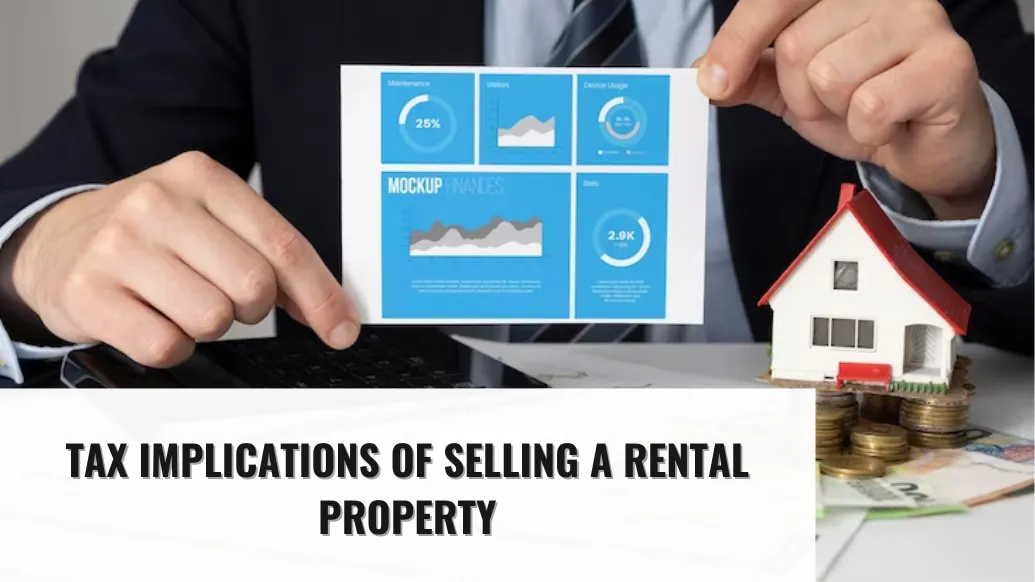Table of Contents:
Published on May 23,2023
Eda Mendoza

Table of Contents:
Evaluating the signs that indicate it is time to sell a rental property can help investors determine when to maximize their profits and move on from an investment. Owning a rental property involves many factors, such as time, effort, enjoyment of being a landlord, real estate market movements, aggravations caused by problem tenants, and maintenance issues. Additionally, there are taxes associated with selling a rental property that needs to be taken into consideration. Understanding what signs may indicate it is time to sell your rental property will help you make an informed decision about when to let go of your investment.
Rental Property Investment Basics
Investing in rental property requires careful consideration of factors such as profitability, market movements, and landlord aggravations before making a decision. Nearly half of the 48.5 million rental units in the United States are owned by individual investors, and understanding the basics of real estate investing is key to success.
Here are some important items to consider when deciding whether it's time to sell your investment property:
Profitability: Positive cash flow is the first factor in a good investment, but if you're losing money each month, it may be time to reevaluate. Also, keep an eye on asset appreciation and capital gains tax implications; ensure that your profits can be used wisely elsewhere or reinvested into another venture while still reducing your tax burden
Market Movements: Real estate market movements are difficult to predict, so it's important to stay up-to-date with current events that could affect rental prices or values. Areas with universities, for example, tend to have high graduate populations, which makes them attractive for renters but also presents a risk if there's an economic downturn.
Landlord Aggravations: Being a landlord isn't always enjoyable, especially from a remote location where management and staffing costs can break the budget quickly. It's important to weigh the time, effort, and enjoyment of being a landlord against potential income when considering selling an investment property - tenant problems such as late rent payments or costly damage repairs should also be taken into account if they become too much trouble.
Signs It's Time to Sell Your Rental Property
Analyzing the return on investment, market movements, and landlord aggravations is essential for discerning when it is time to part with a rental property - after all, time is money. When determining whether or not to sell your property, there are various factors to consider, such as the current real estate market and your personal goals. Major life events like marriage, children, or retirement may also signal that it's time to consider selling your rental property
When you begin to notice signs that indicate it’s probably time to sell, then you should start taking action. These signs include: Losing money every month due to high operating costs, tenants causing extensive damage or not paying rent, or being no longer able to afford the maintenance.

How to Sell Your Rental Property Quickly and Easily?
The first step in selling your rental property is to determine the value of the property by having it appraised. This will tell you how much money you can expect to receive from selling it. An experienced real estate agent or broker can provide valuable advice on pricing strategies, marketing tactics, and other considerations when selling your rental property. Additionally, they can help you understand current trends in the real estate market, which might influence your decision whether to sell or keep your investment.
If you want immediate cash rather than waiting for months for potential buyers to come through with offers, one option may be working with a Concierge Home Buyer or another cash home buyer who can make an offer on the spot and close within days instead of months as a traditional home sale would take.
If tax considerations are important, then buying an LLC may be worth considering in order to minimize taxes due on capital gains from sales proceeds as well as deductible expenses associated with owning and renting out properties over time.
Finding ways to reinvest those funds back into more profitable investments also needs consideration prior to putting a house up for sale as this could be beneficial depending on market conditions at any given point in time; however, timing these decisions correctly is key as real estate markets tend not always move in predictable directions.
Renting vs. Selling: Which Option is Right for You?
Owning an investment property can provide a steady stream of rental income and the potential for appreciation, but eventually, the time will come when it's best to sell the property. Knowing when to sell your rental can be difficult, especially if you are still receiving regular tenant payments and have not experienced any major issues with them.
It is important to consider whether the value has increased or decreased since you purchased it, current market conditions, your return on investment (ROI), and whether selling could result in a better overall outcome than continuing to rent out the property.
If this becomes too costly or burdensome, then selling may be necessary in order to avoid further losses. Additionally, if your tenants continually miss payment deadlines or cause expensive damage, then you may want to consider selling before things get worse.
You should also think about whether owning multiple properties might be more profitable than just focusing on one single unit; this could help diversify your portfolio while still providing a good return on investment.
There are some signs that indicate it may be best not to sell after all: for example, if you have achieved all of your goals as a landlord and investor or if there is potential for future appreciation of the property value. In addition, if there are no major problems with tenants and rent payments remain consistent each month, then continuing to rent out may make more sense than selling at this time – especially given how unpredictable real estate markets can be at times.
It's important to factor in any tax implications from selling as well; capital gains taxes must be paid on any profits made from flipping properties, but these can be offset by taking advantage of deductions associated with renting out, such as repairs and maintenance costs.
When Should You Sell Your Rental Property?
For some, it may be clear that the benefits of the property have diminished, while other signs might point to a good idea to sell. There are times when it can be difficult to tell if it's time to sell your rental property, but there are certain signs that suggest that significant time has been spent attempting to keep a rental property profitable, and now might be the moment for change.
Whether you're considering selling a single-family rental property or investing in a new rental property, there are several signs that indicate it may be time to part with your investment – provided the amount of work needed doesn't outweigh the potential benefits.
Here are 10 signs an investor should look out for if they want to know when it's time to sell their rental property:
1. You've held the investment for five years or more
2. Negative cash flow
3. Property taxes have increased significantly
4. You're no longer interested in being a landlord
5. Capital gains taxes on the sale would reduce your tax burden
6. You're ready to invest in a stronger opportunity or diversify your portfolio
7. Repairs and maintenance costs are too high
8. Tenants continually late on rent payments
9. Your goals as a real estate investor have been achieved
10. You can no longer afford the upkeep of the rental property
Analyzing the Current Real Estate Market
Evaluating the performance of a rental property can help investors decide if it is time to sell in order to maximize profits and minimize losses. Property owners should consider all factors when determining whether or not they may want to sell, such as their own satisfaction with the property management process, the current market conditions, and other investment opportunities available.
When ready to sell a property, investors should look into their portfolios and assess what other investments they may be making. Many investors will want to move on to their next investment opportunity or diversify their current portfolio with another investment property. This could be a good time for investors who are ready for a change or looking for multiple investments in different markets.
Investors must also consider whether or not the current investment still makes sense financially. If an investor notices that the profits on their rental property have diminished over time, then it might be time to sell that particular asset and find another investment with higher returns.
Taxes must always be taken into consideration when deciding whether or not to sell an investment property. It is important that investors keep track of deductions associated with renting the property in order to reduce their tax burden when it comes time to make the sale; otherwise, they may find themselves facing unexpected financial hardship due to high capital gains taxes after selling the rental property.

Tax Implications of Selling a Rental Property
Considering the tax implications of selling a rental property is essential for investors to maximize profits and minimize losses. There are many factors that need to be taken into account, such as rental signs, the real estate market, and potential gains or losses.
It is important to understand how taxes may affect a sale before making any decisions. When you sell your rental property, you are responsible for paying capital gains taxes on the profit from the sale. This can often be mitigated by keeping track of deductions associated with renting out your property and taking advantage of other available deductions.
If you plan on moving more than 10 miles from your home to purchase another rental property, then some of the costs associated with relocating may be deductible under certain circumstances.
The Benefits of Selling Rental Property to a Home Investor
When looking to maximize returns from selling rental property, investors may decide to consider the option of selling to a home investor as one possible strategy.
A home investor is typically an individual or company that specializes in purchasing properties with cash and quickly reselling them for profit. This type of transaction can provide several advantages for investors who are looking to sell their rental properties.
The primary benefit of working with a home investor is the speed at which the transaction can take place. In many cases, the entire process can be completed in as little as seven days, greatly reducing both costs associated with traditional real estate sales and time spent waiting on buyers or tenants.
Additionally, since most home investors purchase homes without fees or commissions, it gives sellers greater control over potential profits from the sale.
Selling directly to a home investor also provides benefits in terms of privacy and liability concerns. Home investors often purchase houses 'as-is,' meaning there are no repairs needed before the sale takes place; this helps keep seller information out of public records such as MLS listings and reduces potential legal liabilities associated with repair work after closing.
Related Articles:
How
to Evict a Tenant in Riverside CA
Avoid Foreclosure
Sell My House Fast Corona, CA
We Buy Houses for Cash Moreno
Valley CA
